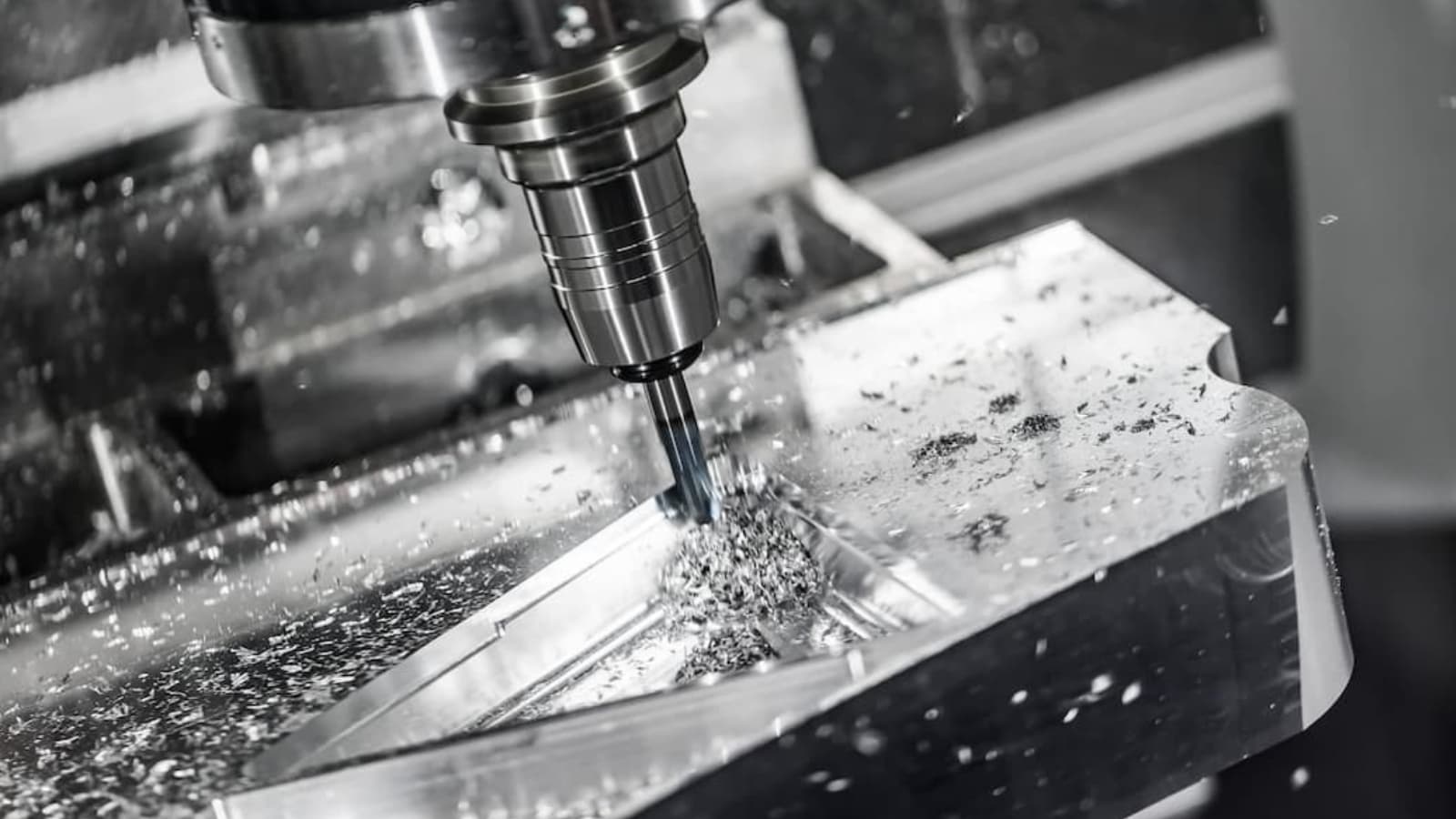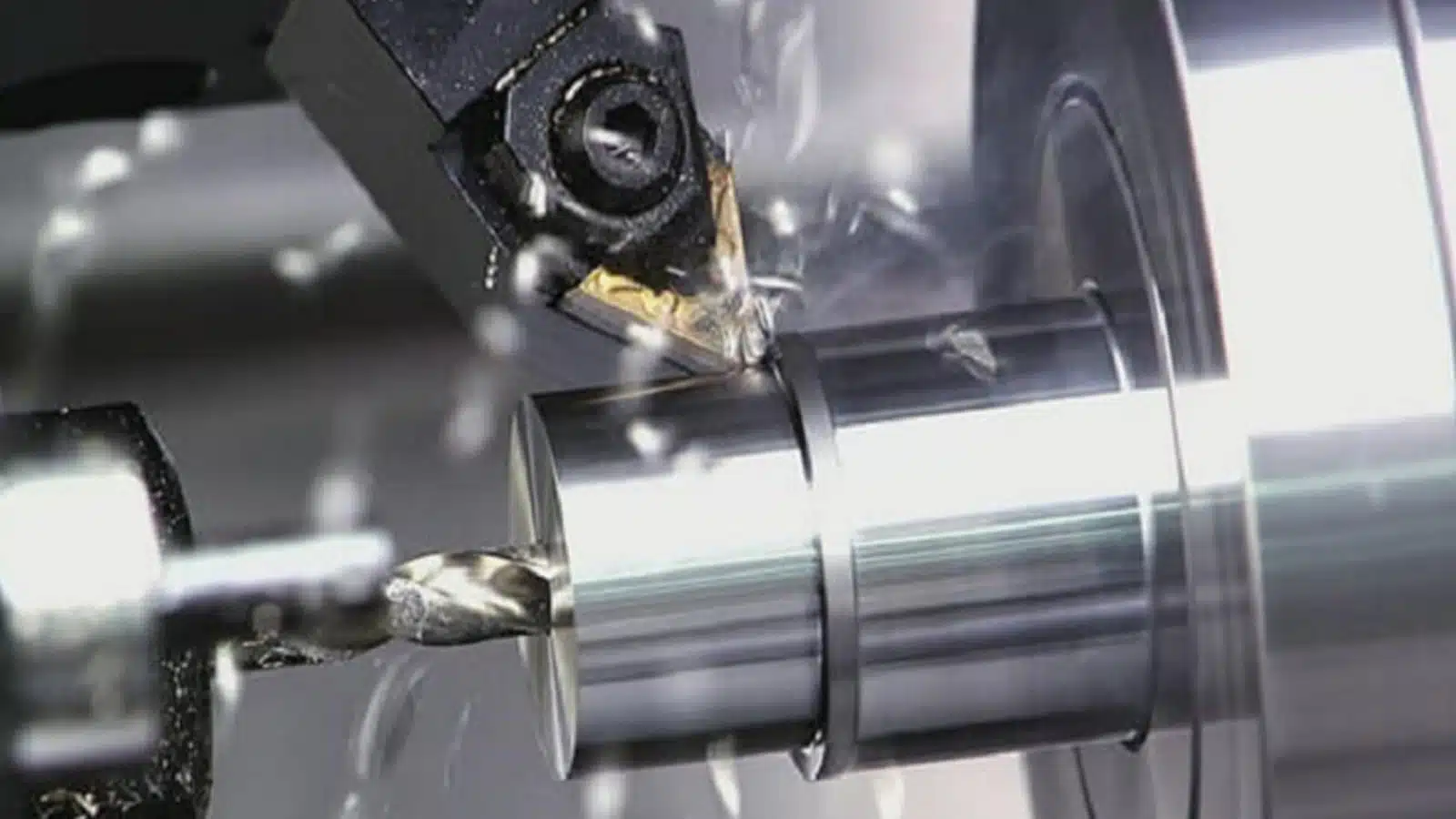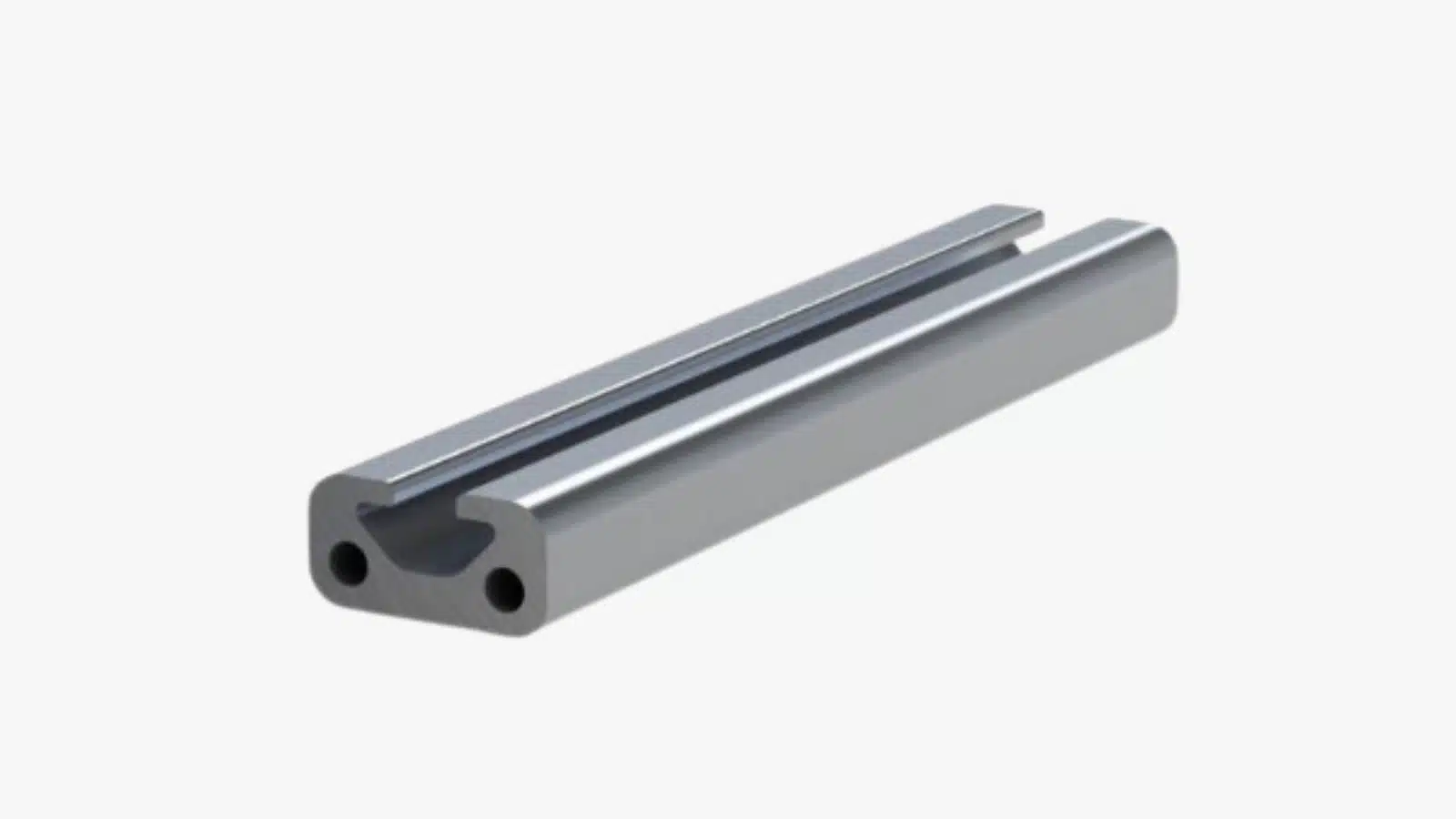What is one of the food industry’s most important manufacturing methods? The answer is rapid sheet metal fabrication.
Sheet metal fabrication is a manufacturing approach that uses many methods, like cutting, punching, bending and welding, to form thin sheets of metal into high-quality products. Today, sheet metal fabrication is used across many industries, including automotive, healthcare and architecture, among others. In the following article, we will zoom in on a particular area where rapid sheet metal fabrication has become an integral production process: the food industry.
This goes without saying, but rapid sheet metal fabrication is not used in the food industry to make food. Rather, it is used to create many types of products and systems for restaurants and food production facilities. One of the reasons for this popularity is that sheet metal materials are very strong and durable, which make them suitable for the industrial settings of the food industry. Sheet metal fabrication also has the benefit of producing parts with high tolerances that meet industrial standards. Read on to learn some of the most important ways that rapid sheet metal fabrication is used in the food industry.
1. Commercial Kitchen Installations
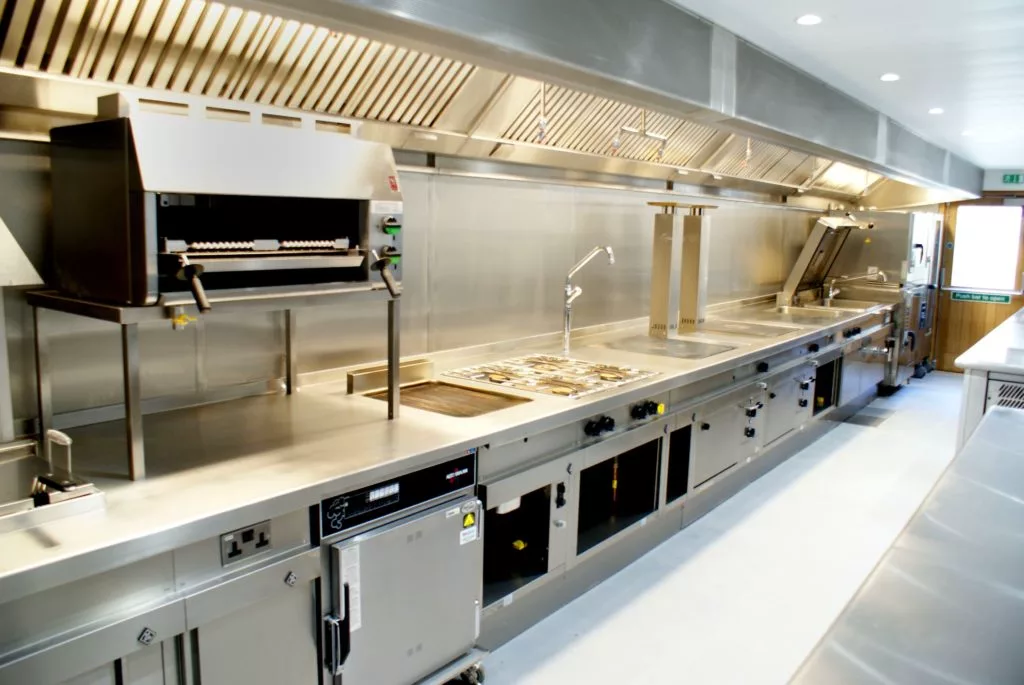
Most commercial and industrial kitchens are outfitted with stainless steel surfaces, ranges, storage and counters. Most, if not all, of these kitchen installations are made using rapid sheet metal fabrication, which is the most efficient and cost-effective way of producing large metal structures with precision. Products such as counters and shelving in a kitchen do not require complex geometries, and in an industrial or commercial setting, style is not critical. What is important is that kitchen structures are strong, level and food-safe. Rapid sheet metal fabrication is therefore a popular option for building a commercial kitchen space. Moreover, because sheet metal fabrication is suitable for one-off or small batch production—unlike injection molding—it is also possible to customize kitchen installations without significant cost.
2. Vending Machines

Though people are most interested in what is inside vending machines, there is also something to be said about how they are engineered and crafted. Sheet metal fabrication is a key manufacturing process for vending machines: bending, blanking and welding are just some of the metal forming techniques used to create vending machine bodies and internal components. So, whether it’s a candy, beverage or custom vending machine, there’s a high likelihood that as you put your change into the slot, a sheet metal fabricated mechanism is helping to deliver your order.
3. Food Tanks
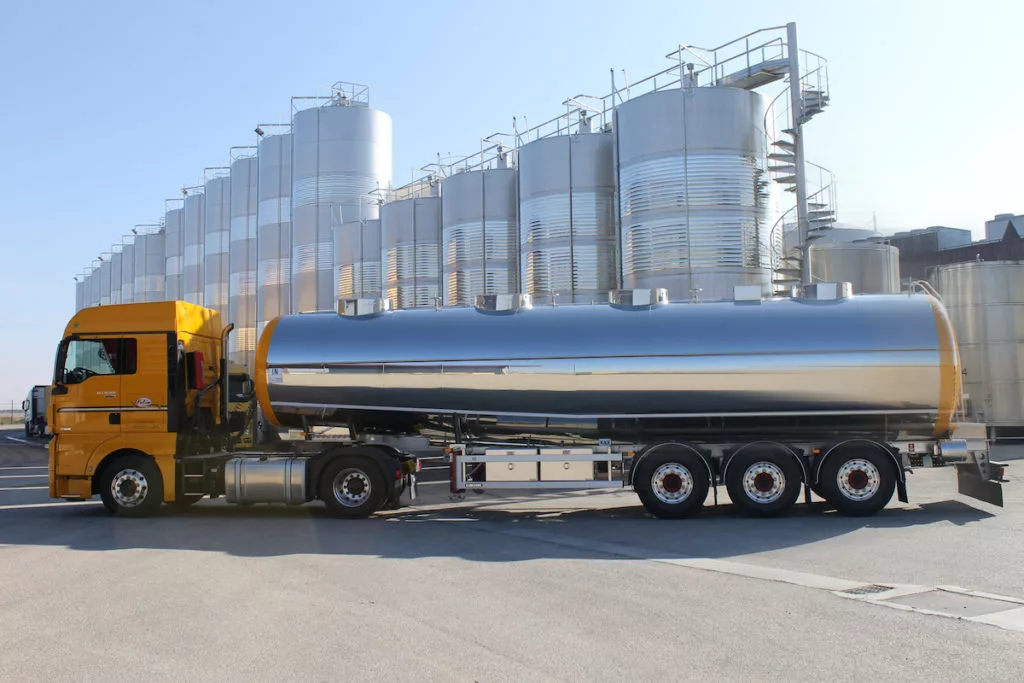
Another use for rapid sheet metal fabrication in the food industry is in the production of industrial-sized tanks. These are typically made from sheets of stainless steel and come in a variety of sizes. Tanks are commonly used in the food sector to store liquids or bulk products and play an important role in the production line. Because customers often require specific volumes and dimensions to fit their food-grade facility, sheet metal fabrication offers the right degree of customization needed, without the high cost. Tanks can be used to store food products, to fill bottles or containers and more.
4. Ventilation systems
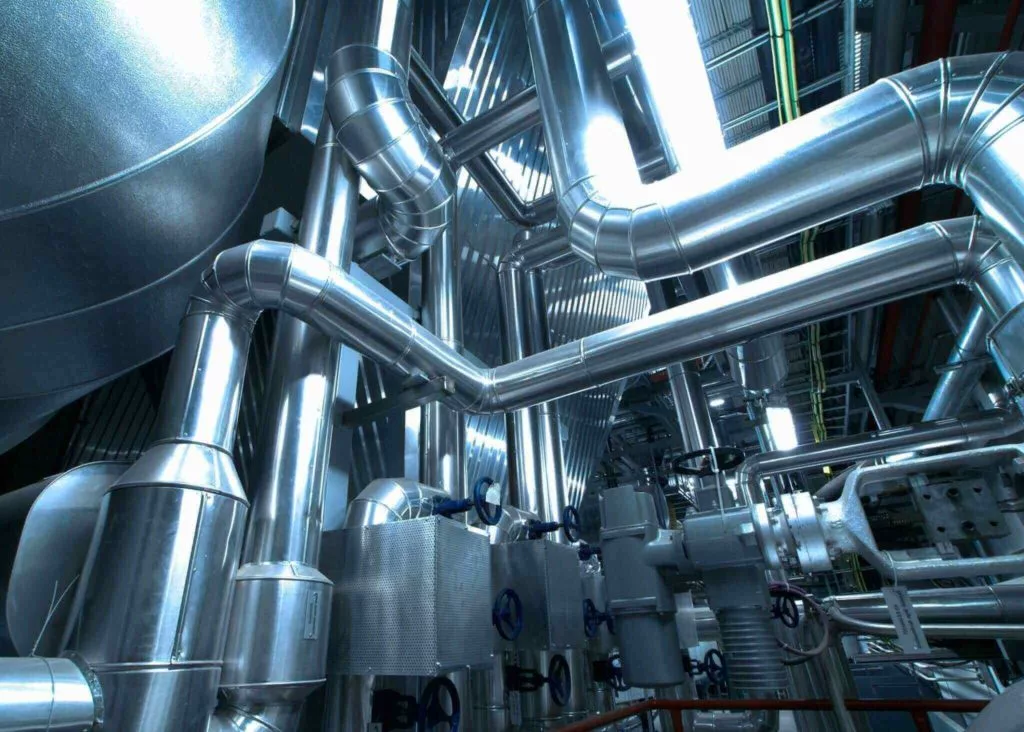
When working with food, manufacturers must be very careful that their facilities meet health and safety standards. This goes beyond keeping surfaces clean and sterile: the air in food production facilities must also be high quality to avoid any potential bacteria or mold growth. To maintain good ventilation, food facilities and commercial kitchens need a hygienic air handing and air delivery system. Sheet metal fabrication is commonly used to produce ducts for these systems, which carry clean air into the building and remove stale air. Sheet metal ducts can be customized to the space and can ensure that food production facilities are well ventilated.
5. Food Conveyor Belts

Conveyor belt systems are used in many industries, as they can greatly facilitate the transport of products or parts within the factory setting. Conveyors are also popular because they are much safer than forklifts and other motorized transport. Sheet metal fabrication is integral to the production of conveyor belts, which must often be customized to the food production facility they are installed in. In this application, sheet metal fabrication is the most cost-effective way to form metal components for the conveyor system. Because conveyors used in food production facilities are also in direct contact with food, the metal they are made from must also be certified food safe (more on that below).
Food-grade metals
When working in any industry, it is important to select materials that meet standards and performance requirements. In the food industry, it is not only strength, durability and conductivity that must be taken into account: food companies must also select metals that are certified as food safe. This means that the material must be washable, be resistant to chipping or scratching and must not influence the color, smell or taste of food that touches it.
In the food industry, several food-grade stainless steels are popular with rapid sheet metal fabrication, including 304 Stainless Steel, 316 Stainless Steel and 430 Stainless Steel. Aluminum alloys are also commonly used in the food industry, popular for their lightweight properties and temperature tolerance. However, aluminum’s applications in the food industry are somewhat limited because of its low tensile strength and impact tolerance compared to stainless steels. In the aforementioned examples, stainless steel would likely be the material of choice, however customers can request other metals for special cases.
Food-grade quality
In addition to choosing the right material for food-grade applications, it is also important to think about the quality of products. Because metal surfaces, machines and components may come into direct contact with food items, they must be sanitary and easy to clean. This means that care must be taken throughout the manufacturing process to avoid defects such as cracks, beading or burrs, which can be challenging to clean and encourage bacteria growth if food gets stuck inside them.
In other words, metal parts used in food production facilities or kitchens must be of the highest quality and meet stringent industry regulations. Facilities where metal parts are made for food applications must also follow strict standards to ensure that parts will be safe to use.
For more information about the rapid sheet metal fabrication process, check out our basic knowledge guide.
